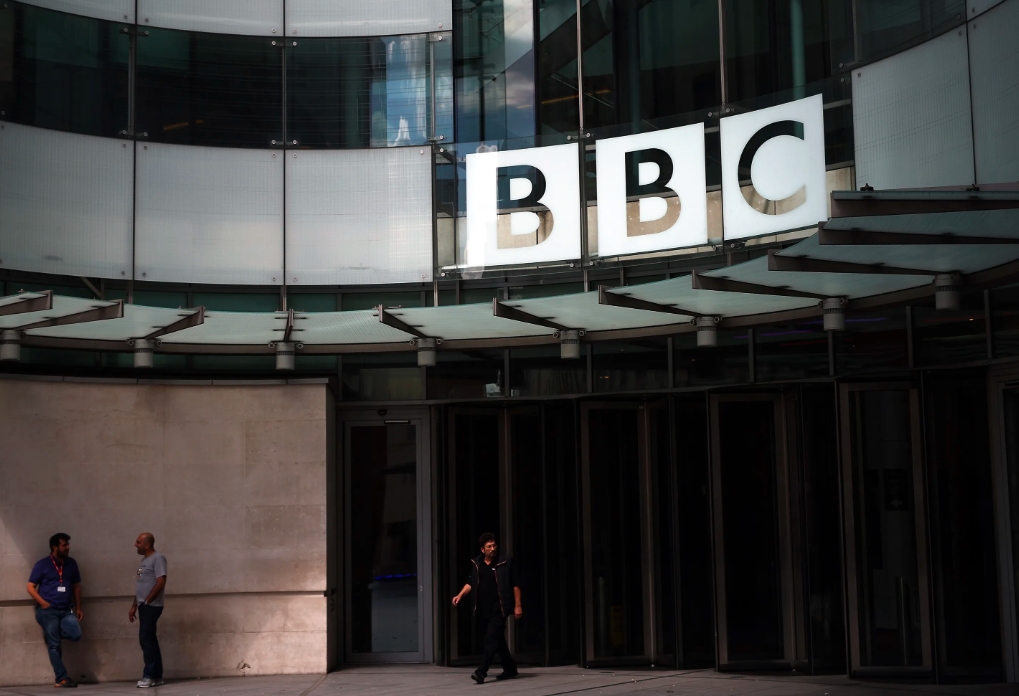The BBC has issued an apology after it admitted to making ‘editing errors’ in a report on the recent Israeli airstrikes on Gaza. The report, which aired on BBC World News on November 27, 2023, showed footage of a building being destroyed by an Israeli missile, but failed to mention that the building was used by Hamas as a media centre and a weapons store.
The report and the errors
The report, titled ‘Gaza: The children who have seen too much’, was part of a series of stories on the impact of the conflict on the civilians in Gaza, especially the children. The report featured interviews with children who witnessed the destruction and trauma caused by the Israeli airstrikes, as well as footage of the aftermath of the attacks.
However, the report also included a clip of a building being hit by an Israeli missile, which was presented as an example of the indiscriminate targeting of civilian infrastructure by Israel. The clip was accompanied by a voice-over that said: “This was a residential building, according to the Gaza health ministry. There was no warning.”
The clip, however, was misleading, as the building was not a residential building, but a multi-storey structure that housed the offices of several media outlets, including Al Jazeera and the Associated Press, as well as a weapons store used by Hamas, the militant group that controls Gaza. Israel had warned the occupants of the building to evacuate before the strike, and no casualties were reported.

The clip was also edited in a way that removed the sound of the warning shots fired by Israel before the missile hit the building, which could have alerted the viewers to the fact that the building was not a random target.
The apology and the reaction
The BBC acknowledged the errors in a statement published on its website on November 28, 2023. The statement said: “We apologise for this error and the distress caused to our audiences. We are reviewing our editorial processes to ensure this does not happen again.”
The statement also said that the clip was taken from a longer report that did mention the nature of the building and the warning shots, but that the clip was edited for time and context for the shorter report. The statement said that the BBC did not intend to mislead the viewers or to distort the facts.
The apology, however, did not satisfy some critics, who accused the BBC of bias and propaganda against Israel. The Israeli embassy in London said that the report was “a clear breach of journalistic ethics and standards” and that it “served the interests of a terror organisation”. The embassy also said that it had lodged a formal complaint with the BBC.
On the other hand, some supporters of the Palestinian cause said that the apology was not enough, and that the BBC should also address the broader issue of the imbalance in its coverage of the conflict. They said that the BBC had failed to give enough attention to the plight of the Palestinians, who suffered more casualties and damage than the Israelis in the recent escalation.
The context and the background
The report and the apology came amid a tense and fragile ceasefire between Israel and Hamas, which was brokered by Egypt on November 21, 2023, after 11 days of fighting. The fighting was triggered by the clashes between Israeli police and Palestinian protesters at the Al-Aqsa Mosque compound in Jerusalem, a holy site for both Muslims and Jews, as well as the planned eviction of some Palestinian families from their homes in the Sheikh Jarrah neighbourhood of the city.
The fighting was the most intense since the 2014 Gaza war, and resulted in more than 250 deaths, mostly Palestinians, and thousands of injuries, as well as widespread destruction of buildings and infrastructure in Gaza. Both sides claimed victory after the ceasefire, but also warned that the underlying issues that fuelled the conflict remained unresolved.
The BBC, as one of the world’s leading news organisations, has a large audience and influence in the region and beyond, and has faced criticism and scrutiny from both sides of the conflict over its coverage and impartiality. The BBC has said that it is committed to reporting the facts and the context of the conflict in a fair and balanced way, and that it welcomes feedback and complaints from its viewers.


















